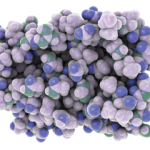Meet Nutritional Needs
Cristina Montoya, a registered dietitian and owner and founder of Arthritis Dietitian, urges patients to break away from diet cultures, or self-imposed restrictive diets, that may be inadvertently contributing to fatigue, such as a low or no carbohydrate diet. She noted that complex carbohydrates, such as whole grains, are full of B vitamins that are essential for energy. She also discussed ways to conserve energy around meal preparation to ensure nutritional needs are met, such as using precut ingredients for cooking, getting family involved, the use of slow cookers or using meal prep services, if feasible. She will also collaborate with clinicians to investigate and correct any nutritional deficiencies, such as folate, vitamin B-12 or vitamin D.
For her many patients who are overweight, she recommends checking for metabolic biomarkers, such as hemoglobin and lipid profiles, to see if hyperglycemia could be exacerbating fatigue.
Supplements: Dr. Askary also spoke about the role of supplements, such as magnesium, which he prescribes to help with sleep and muscle function, but also vitamins B-12 and D. He mentioned the use of modafinil, typically prescribed by a neurologist or psychiatrist for narcolepsy, or possibly attention-deficit/hyperactivity disorder. However, he doesn’t have much experience with it. He laughingly said he recommends strong espresso or Turkish coffee. But he does not recommend steroids, which he said are contraindicated.
Mary Beth Nierengarten is a freelance medical journalist based in Minneapolis.
Reference
- Dures E, Farisogullari B, Santos EJF, et al. 2023 EULAR recommendations for the management of fatigue in people with inflammatory rheumatic and musculoskeletal diseases. Ann Rheum Dis. 2024 Sep 30;83(10):1260–1267.
